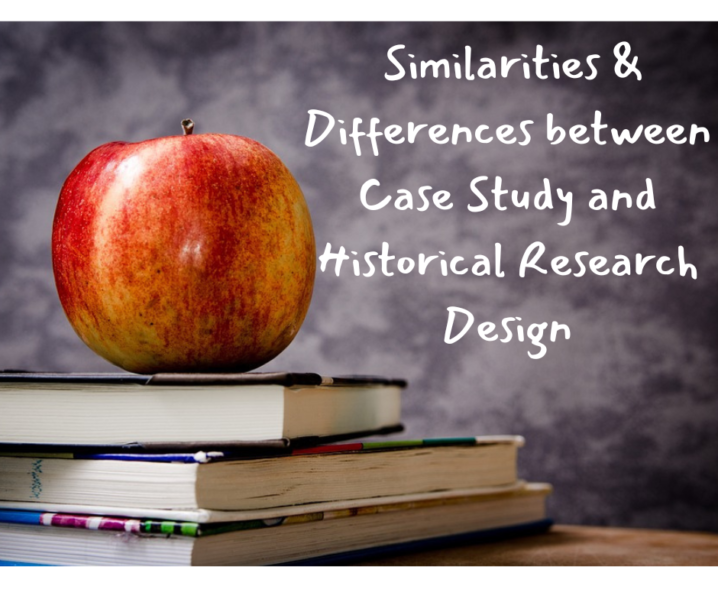Theoretical underpinning, strong underlying support and sound justification are regarded as critically important for any research venture whether it is qualitative, quantitative, or mixed-methods study. Similarly, all PhD dissertations and research papers need to have a valid theoretical or conceptual framework to justify the standing and significance of the research work.
The article: Writing a theoretical framework for a PhD thesis: How important it is? briefly explains- what a theoretical framework is?, the significance of a theoretical framework in research, how to write a theoretical framework?, how to make selection of a theoretical framework?, and the most important points to be taken into consideration while writing a theoretical framework.
This blog post discusses, what the terms theoretical and conceptual frameworks connote, its importance, the challenges confronted by the PhD scholars while writing a theoretical framework and the difference between theoretical and conceptual frameworks. Some concrete examples of the theoretical and conceptual frameworks are thoroughly discussed in the blog post: Conceptualizing a theoretical framework for qualitative research: Exemplifying 03 relevant.
Definition of a theoretical and conceptual framework
A well-defined theoretical or conceptual framework provides the guiding framework for the PhD dissertation. It offers theoretical assumptions for the larger context of a research undertaking and makes the foundation on which a research project is developed. It helps to shape the research focus under study within theoretical underpinnings and to frame the inquiry for data analysis and its subsequent interpretation.
Importance of a theoretical and conceptual framework in research
A theoretical or conceptual framework provides a strong evidence of academic standards and scholastic functions. It offers an explanation of why the study is significant, pertinent and valid and how the scholar intends to fill the existing gaps in the body of literature.
It provides a theory-driven approach to the current thinking when the research study is framed by theoretical considerations starting with a well-defined theoretical framework. It provides for deliberations of the theoretical contributions to the current scholarship within the given discipline. A formal theory provides background setting for the data collection, analysis and outcome of the events undertaken in the research study.
In fact, a research study that imbibes a theoretical framework makes the thesis robust and well-structured having a smooth and steady flow. In the absence of a well-thought-out theoretical framework, the structure and direction of the research activity get uncertain, elusive and vague.
What theoretical and conceptual frameworks mean?
The theoretical framework helps explain why the current research problem exists while using the lens of a relevant theory from existing literature. However, it is believed that the research paradigm determines the role of a theory in the research undertaking. Hence, one must consider his/her world view in the research. In fact, both explain the future course of the research study justifying the research enterprise with the aim to make sure that the findings are more meaningful, acceptable and generalizable.
Problems faced by novice researchers conceptualising theoretical or conceptual frameworks
The PhD scholars and novice researchers always face troubles for their misconception of what constitutes a theoretical framework. Some of them believe that the theoretical framework is used for qualitative research as this paradigm produces detailed and comprehensive information about an area from where one can discern a number of themes and patterns. While the conceptual framework is used only for quantitative research studies developed subsequently, outlining the mental image of the themes and patterns that are emerging from the data.
Difference between a theoretical and conceptual Framework
Used interchangeably, the constructs of a theoretical and conceptual framework is generally regarded as one and the same; nevertheless, there is a slight difference between the two. Though these frameworks are closely associated, they have characteristics that make them distinctly separate from each other. Some of the key distinction between theoretical and conceptual frameworks has been given in the following:
| S. No | Theoretical Framework | Conceptual Framework |
| 1. | Theoretical Framework provides the blueprint for the research inquiry and serves as the guide on which to build and support the entire study. It provides the structure to define how the scholars shall approach the thesis as a whole. | Whereas, the Conceptual Framework provides a model explicating what the researcher intends to study. |
| 2. | Theoretical Framework used to be based on the existing theory duly tested and validated by other researchers (e.g. theory of motivation, general systems theory, practice theory etc). | Whereas, the Conceptual Framework used to be grounded in the concepts that provide for the main variables in a research inquiry. This is something the research scholars develop themselves based on the theories. |
| 3. | Theoretical Framework provides for broader guidelines or a general set of ideas within which a research study can be fit in. | Whereas, the Conceptual Framework relates to specific ideas the scholars use in their research study. |
| 4. | Theoretical Framework is generally presented in the shape of a model that supports a research study. | Whereas, Conceptual Framework is presented as the research scholars’ own constructed model they use to showcase the relationship between the variables in the research work. It takes the shape of an adaptation of a model in the existing theory. |
| 5. | Theoretical Framework needs to be well developed, designed and widely accepted | Whereas, the Conceptual Framework needs not to widely accepted, for being researchers’ own answer to the research problem they defined. |
| 6. | Theoretical Framework provides a direction for approaching the unknown research in a specific discipline. | Whereas, the Conceptual Framework offers a model that demonstrates how the research inquiry is to be conducted logically. |
| 7. | Theoretical Framework comprises of the theories appeared to be interlinked with propositions of the study. | Whereas, the Conceptual Framework comprises of the key interlinked concepts, elaborating the existing relationship between the variable and how the researchers claim to respond to the research problem. |
Conclusion
This article was intended to delineate key differences between theoretical and conceptual frameworks so that the research scholars must succinctly understand and reflect the choice of a theory, its constructs, rational and model in the research proposal and the PhD thesis accordingly.











What do you think?